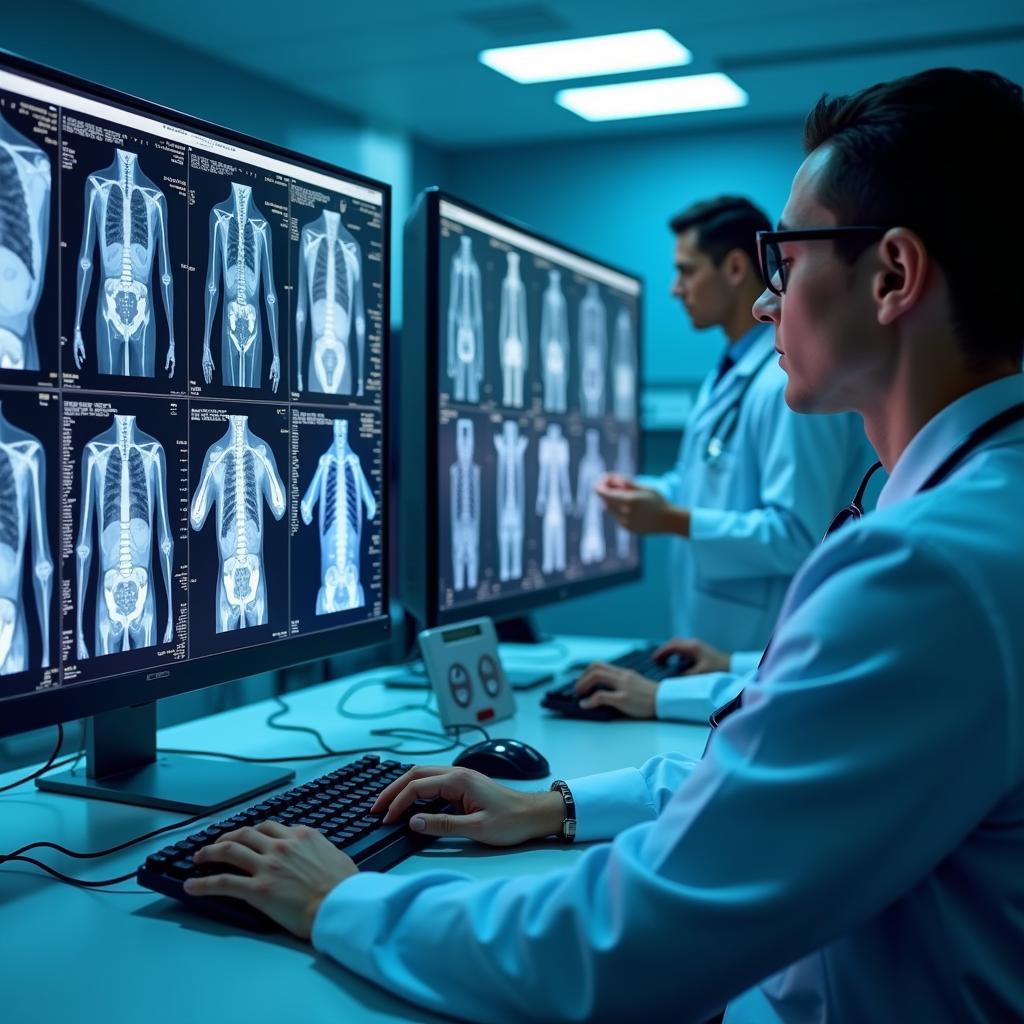The topic of artificial intelligence’s impact on healthcare delivery has become increasingly prevalent in IELTS Writing Task 2 examinations. Based on recent test patterns and the role of technology in healthcare, this theme has appeared multiple times since 2019 and is likely to remain relevant for future tests.
Nội dung bài viết
 AI integration in modern healthcare delivery systems
AI integration in modern healthcare delivery systems
Sample Question Analysis
Some people believe that artificial intelligence (AI) will revolutionize healthcare delivery and improve patient outcomes. Others argue that AI could lead to job losses and reduced human interaction in healthcare. Discuss both views and give your opinion.
This question requires candidates to:
- Examine both positive and negative perspectives
- Provide balanced analysis
- Express personal viewpoint
- Support arguments with relevant examples
Band 8-9 Sample Essay
The integration of artificial intelligence in healthcare has sparked considerable debate regarding its potential benefits and drawbacks. While I believe AI will ultimately enhance medical care delivery, it’s crucial to examine both perspectives carefully.
Proponents of AI in healthcare highlight several compelling advantages. Firstly, AI-powered diagnostic tools can analyze medical images and patient data with unprecedented accuracy, potentially detecting diseases at earlier stages than human physicians. For example, the impact of AI on healthcare delivery has already been demonstrated in radiology, where machine learning algorithms can identify subtle abnormalities in X-rays and MRI scans with remarkable precision. Additionally, AI systems can process vast amounts of medical research and patient records, enabling more personalized treatment plans and reducing medical errors.
However, critics raise valid concerns about potential negative consequences. The primary argument centers on workforce displacement, as certain medical tasks become automated. Moreover, there are legitimate worries about the reduction in human touch and empathy in healthcare settings, which many consider essential for patient well-being. Some patients, particularly elderly individuals, may feel uncomfortable interacting primarily with AI-driven systems rather than human healthcare providers.
In my opinion, while these concerns merit attention, the benefits of AI in healthcare substantially outweigh the drawbacks. Rather than replacing healthcare workers, AI is more likely to augment their capabilities, allowing them to focus on tasks requiring human judgment and emotional intelligence. Furthermore, the benefits of sustainable healthcare systems suggest that AI integration could make healthcare more accessible and efficient, particularly in underserved areas.
(Word count: 275)
 Healthcare professionals collaborating with AI systems
Healthcare professionals collaborating with AI systems
Band 6-7 Sample Essay
Artificial intelligence in healthcare is a topic that many people have different opinions about. In this essay, I will discuss both sides of this issue and share my thoughts.
On the positive side, AI can help doctors work better and faster. It can look at medical images like X-rays very quickly and find problems that doctors might miss. Also, AI can help keep track of patient records and suggest treatments based on lots of medical data. This means patients might get better care and faster treatment.
However, some people worry about problems with AI in healthcare. First, many medical workers might lose their jobs if computers do their work. Second, patients might not like talking to machines instead of real doctors. Old people especially might find it hard to trust computer systems with their health problems.
In my opinion, AI will be good for healthcare even though there are some problems. I think doctors will still be important, but they will use AI to help them do their jobs better. The impact of telemedicine on rural healthcare access shows that technology can help more people get medical care, especially in places where there aren’t many doctors.
(Word count: 253)
Key Vocabulary
- revolutionize (v) /ˌrevəˈluːʃənaɪz/ – to completely change something
- augment (v) /ɔːɡˈment/ – to make something greater by adding to it
- unprecedented (adj) /ʌnˈpresɪdentɪd/ – never having happened before
- workforce displacement (n) /ˈwɜːkfɔːs dɪsˈpleɪsmənt/ – the replacement of workers by machines
- integration (n) /ˌɪntɪˈɡreɪʃn/ – the process of combining things effectively
Advanced Sentence Structures
-
Complex sentence with multiple clauses:
“While I believe AI will ultimately enhance medical care delivery, it’s crucial to examine both perspectives carefully.” -
Conditional structure:
“Rather than replacing healthcare workers, AI is more likely to augment their capabilities, allowing them to focus on tasks requiring human judgment.” -
Participle clause:
“The primary argument centers on workforce displacement, raising concerns about technological unemployment in the medical sector.”
Consider practicing with this topic and sharing your essays in the comments section for feedback and improvement suggestions.


